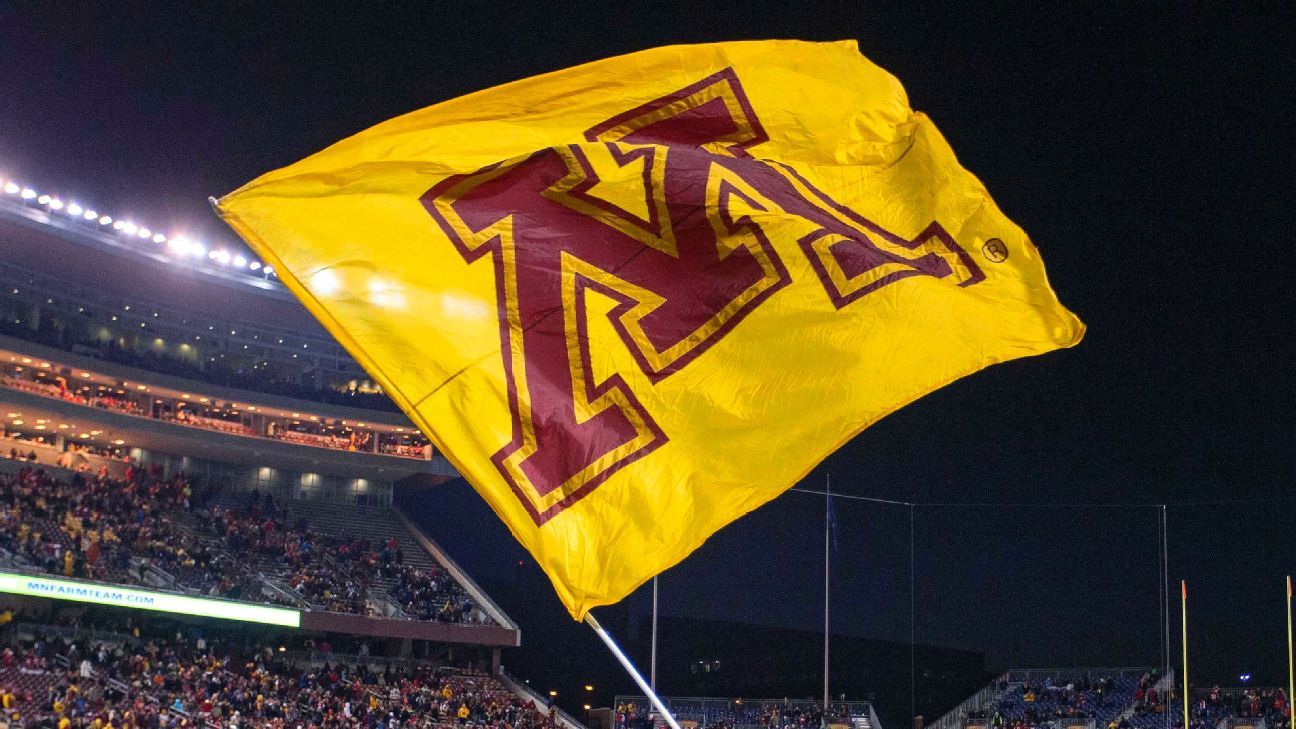MINNEAPOLIS — The Minnesota football players who were suspended in 2016 following a sexual assault investigation are seeking $45 million in damages from the school through a gender and racial discrimination federal lawsuit.
The lawsuit, filed Friday and obtained by ESPN, states that “racial and gender discrimination; intentional, willful, and malicious misconduct; and deliberate indifference” by the university caused irreversible damage to nine of the 10 football players who were suspended in December 2016 after the incident.
Five were subsequently cleared and reinstated, while the other five were either expelled or suspended. Three of the reinstated players — Antoine Winfield Jr., Seth Green and Antonio Shenault — are still on the team.
Dave Madgett, the lawyer representing the athletes, said $45 million, $5 million per player, is a reasonable sum.
“Would these guys have earned $5 million in their lifetimes?” Madgett said. “I think that’s a fair number. These guys aren’t hirable at [Minneapolis-based] General Mills.”
The university said it will contest the lawsuit.
“We are aware of the lawsuit served on behalf of several current and former students,” the school said in a statement. “The University thoughtfully and thoroughly responds when faced with disturbing allegations, and provides extensive process to students accused of misconduct, including the opportunity to be heard during thorough investigations, panel hearings, and Provost review. Further, aggrieved students have a right to review by the Minnesota Court of Appeals. We will vigorously defend the University.”
Nearly two years ago, a woman accused multiple players of engaging in nonconsensual sex with her at a party. The players said the sex was consensual.
After the players were suspended in December 2016, their teammates threatened to boycott the rest of the season if the players weren’t reinstated, and former coach Tracy Claeys’ support of the accused players through Twitter contributed to his postseason firing.
Hennepin County prosecutors did not file charges against the players connected to the case. But a subsequent investigation by the school’s Equal Opportunity and Affirmative Action office led to the expulsions or suspensions of five players. The other five players were reinstated through their appeals.
An outside panel concluded the university had followed the law and its official policies in the handling of the case. Madgett, however, said school investigators ignored text messages, videos and other evidence in its attempt to strengthen its cases against the players.
Madgett said the university used the players, who are all black, as “pawns.” He also said he believes the EOAA office has a bias against male athletes, football players in particular. “I think it’s kind of this arcane belief that these guys are just testosterone-filled guys who maybe have a little more aggression,” he said.
